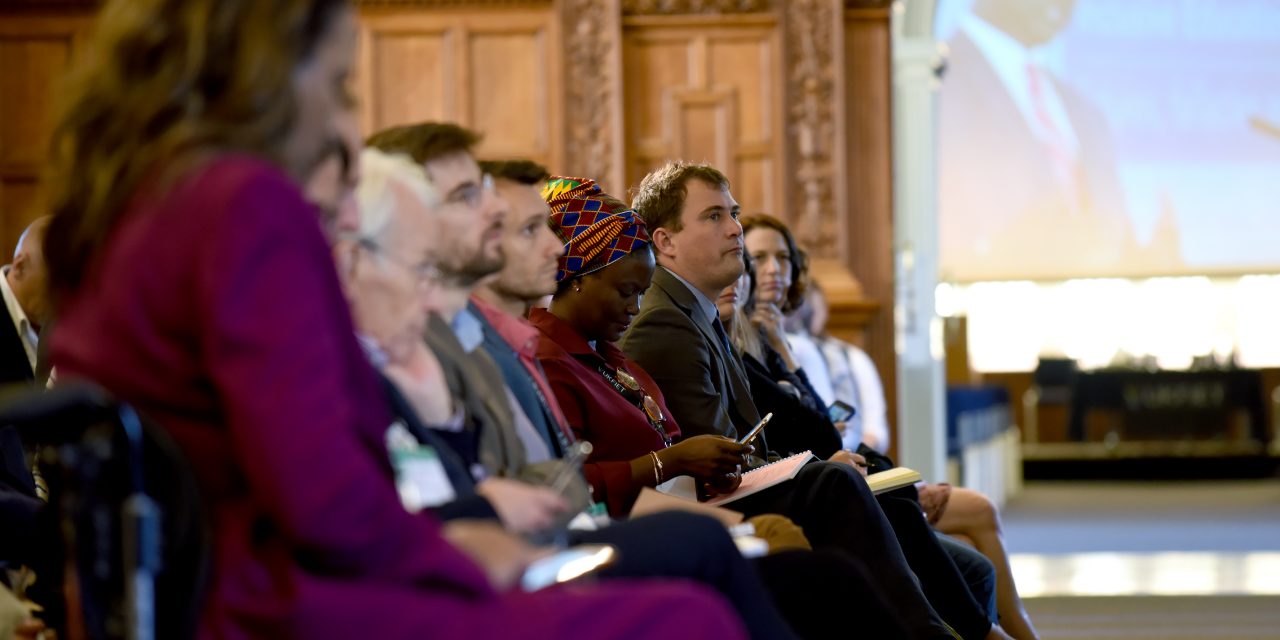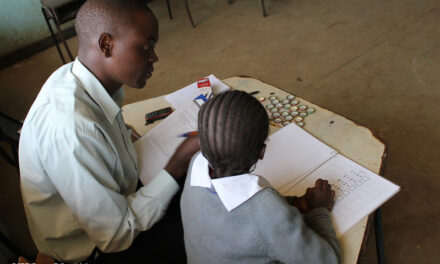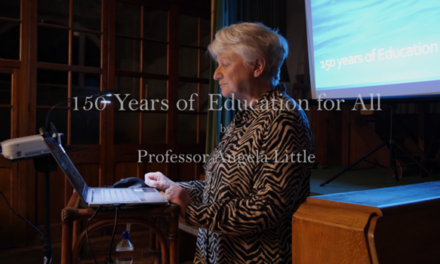This article was written by Susy Ndaruhutse, Chair of UKFIET Trustees; Dr Ruth Naylor, Conference Chair; and Professor Moses Oketch, Deputy Conference Chair. Here, they reflect on the planning and cost structure of the upcoming UKFIET September 2021 conference.
The UKFIET Conference Committee is busy organising our 16th biennial conference for 13-17 September 2021. Since our last conference in 2019, the world has gone through unexpected big changes. Due to the global COVID-19 pandemic, we have all been forced into a virtual world. Education for all ages has had to adapt very quickly, and not always successfully. The UKFIET conference comes at a crucial time, where we need to come together to discuss lessons learned and new approaches for going forward to Reimagine, reorientate and redistribute education. Given the ongoing effects from the pandemic, we felt it was important to be guided by the conference theme through our planning for the upcoming conference. This article reflects on our decision to move the conference online, how it will be structured to still provide delegates with a rewarding interactive experience, and an outline of our costing.
Over the last year, nearly every organisation across the world has faced challenges due to COVID-19. These have included direct and indirect effects on staff’s physical health and mental well-being, travel restrictions, office closures, supply chain disruptions, changing demand for goods and services, redundancies and an overnight switch to digital working. For a few organisations, this has resulted in business growth due to a rapid increase in demand for products and services. But for many, it has been about facing short- and medium-term uncertainty about their income streams.
UKFIET is no exception. As an organisation, we rely heavily on member organisations and our wider constituency, who give much of their time and expertise in a voluntary capacity to speak at events, contribute to blogs, share research findings, and engage in policy dialogue. But we also need to cover the various costs related to managing and running those events – staffing, hiring of venues, logistics, digital connectivity, website management, etc. – and the vast majority of the finances we use to undertake these activities, come from the fees we charge for our biennial conference.
When we started planning for the 2021 UKFIET conference, we were just coming out of the first UK lockdown in summer 2020. Things were looking less bleak in the UK and rates of COVID-19 infections in much of the Global South were generally low and looked like they were being contained. Because of this, a face-to-face conference in 2021 looked cautiously possible. However, as the months progressed, new variants of the virus were identified, infection rates in a wider group of countries began to rise significantly, and a further UK lockdown was imposed. As a result, in January 2021, the UKFIET Trustees felt it was prudent to plan for a fully online conference for 2021. While we considered whether we could run a hybrid conference, we decided against this. The main reason was that a face-to-face gathering at Oxford might only be possible for a small number of UK-based delegates, with delegates from the Global South and from other locations outside the UK potentially only being able to access digitally. This would not create the level playing field for dialogue that would enable equal access for all. Therefore, the UKFIET Trustees made the decision to ask the Conference Committee to plan for a fully online conference – as well as to consider how to make it as inclusive and interactive as possible.
The UKFIET Conference Committee is planning the conference accordingly, including:
- Networking: we know that opportunities for networking are something which many of our delegates have highlighted as a really valuable and important element of the UKFIET conference. We recognise this is more difficult to do online unless this is actively scheduled. We are planning to have an active virtual networking space. One aspect will provide posters and exhibitions where delegates can interact with those exhibiting. Another will include ‘speed networking’ and group chat rooms. The conference platform will also be opened a week before the start of the conference – this will enable delegates to set up their profile, connect with others and plan an individually tailored programme.
- Timing: we have analysed the typical UKFIET audience by time zone and 80% are within zones BST to BST +3, so most sessions will be between 9am and 3pm BST, with networking time before, after and between sessions.
- Limiting the number of parallel sessions: there will be a maximum of seven at one time to ensure active engagement in discussions in each session. This has meant having to turn away some strong proposals but we are trying to optimise quality engagement in each session.
- Recording/digital footprint: we have asked all paper submissions to submit pre-recorded presentations and we will record all live conference sessions. Delegates will have access to all of these resources for a full month. This will enable delegates to catch up later on any sessions they were not able to attend due to timetable clashes or other commitments.
- Engagement: we are shifting the balance of our usual 90-minute slot presenting three papers to more short presentations and longer discussion with and among presenters – this will allow a wider set of delegates to have the opportunity to engage.
As anyone in the events management industry will know, moving a conference from face-to-face to online is quite a significant change. This does not come without cost, although much of that is unseen or hidden. While there are savings from not having to hire a venue and provide refreshments and meals (as well as delegates saving on travel and accommodation costs), there are significant new costs in terms of the digital management of an online conference. These include having people available during each session to ensure the web platform and Zoom sessions work effectively, for which we have brought a specialist organisation on board.
The Trustees have been emphatic that we need to run the conference on a full cost recovery basis, while continuing to offer bursaries and also introducing a new rate category for those based in low- and middle-income countries (LMICs). The conference rates for 2021 are significantly reduced compared to the 2019 conference.
| Conference fee rates | 2019 (face-to-face) | 2021 (virtual) | Reduction |
| Standard | £465 | £270 | 41% |
| Student | £235 | £90 | 62% |
| LMIC delegates | n/a | £135 | n/a |
We hope this transparency and rationale helps potential delegates see how the Trustees together with the Conference Committee have sought to apply the conference theme quite literally to the organisation, planning and running of the 2021 UKFIET conference. We would encourage you to join us in the rich and thought-provoking discussions and dialogue that we hope the 2021 conference will bring.
See also:
Parental Advisory: Contains explicit expectations. Working together for transformation at the UKFIET conference – Yvette Hutchinson, UKFIET Conference Diversity and Inclusion Officer’s blog about including diversity in the conference criteria.
Building back better in education and training? Contested punctuation – Ruth Naylor, UKFIET Conference Chair’s blog about the conference theme.





